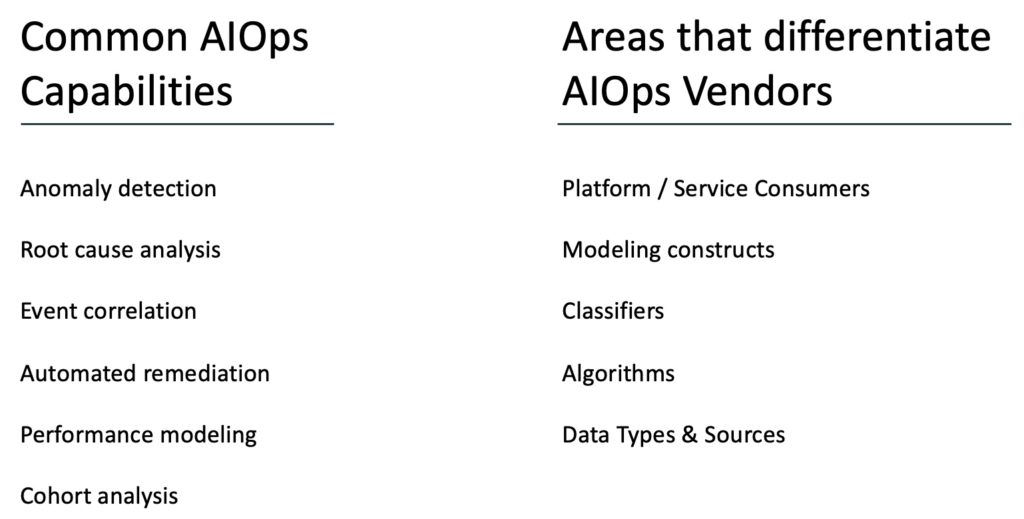Artificial Intelligence for IT Operations (AIOps) is a term coined by Gartner to capture the emergence of AI/ML technologies in operations solutions. The term can best be understood through Gartner’s own definition:
- “AIOps combines big data and machine learning to automate IT operations processes, including event correlation, anomaly detection and causality determination.” Gartner Glossary.
Gartner further divides AIOps into through broad areas:
- Observe/monitoring including historical analysis, anomaly detection, performance analysis and correlation / contextualization, dealing with metrics, traces, and topology,
- Engage / ITSM: including task automation, risk analysis, and knowledge management dealing with incidents, dependencies, and changes.
- Act / Automation: including scripts, runbooks
In other definitions Gartner expands the definition to include design, deploy, execute, and operate. However, the first definition above focusing on event correlation, anomaly detection, and causality determination best describes most of the vendors that Gartner covers in their AIOps guides.

For example, In the 2022 Market Guide for AIOps Platforms, Gartner lists the following AIOps vendors: BigPanda, BMC, Broadcom, Devo, Digitate, Elastic, GAVS, IBM, Interlink Software, Logz.io, Moogsoft, OpsRamp, PagerDuty, ScienceLogic, ServiceNow, Splunk, StackState, Sumo Logic, Vitria, VuNet, and Zenoss.
In general, these solutions are not Network AIOps solutions, and were created to address the application and compute challenges that arose when IT shifted to cloud and micro services architectures. In the page titled “How different vendors describe AIOps“, there are two commonalities that stand out. The paraphrasing of the Gartner definition of AIOps, which is natural, and the targeting of IT; in other words the lack of specific network targeting.
Many AIOps vendors target ITOps, DevOps and SREs. If a vendor is asked who they mainly sell to, and the answer is DevOps, that is a strong signal about who the customer is, the use cases that are important to the vendor, and the constructs that will be modeled.
While there are abstract similarities between vendors who position themselves as “AIOps” the ruber hits the road with the actual features and use cases they focus on. There is no ubiquitous AIOps solution today that adequately addresses all aspects of IT. Some are more focused on applications than networking. Some are more focused on logs than metrics. Many are backwards looking tools and few are scalable real-time tools.
Those look for approaches purpose-built for networking, should read our guide to Network AIOps and also the Augtera Networks platform and solutions. Those addressing operations issues outside of networking may find one of the below vendors are good fit.

